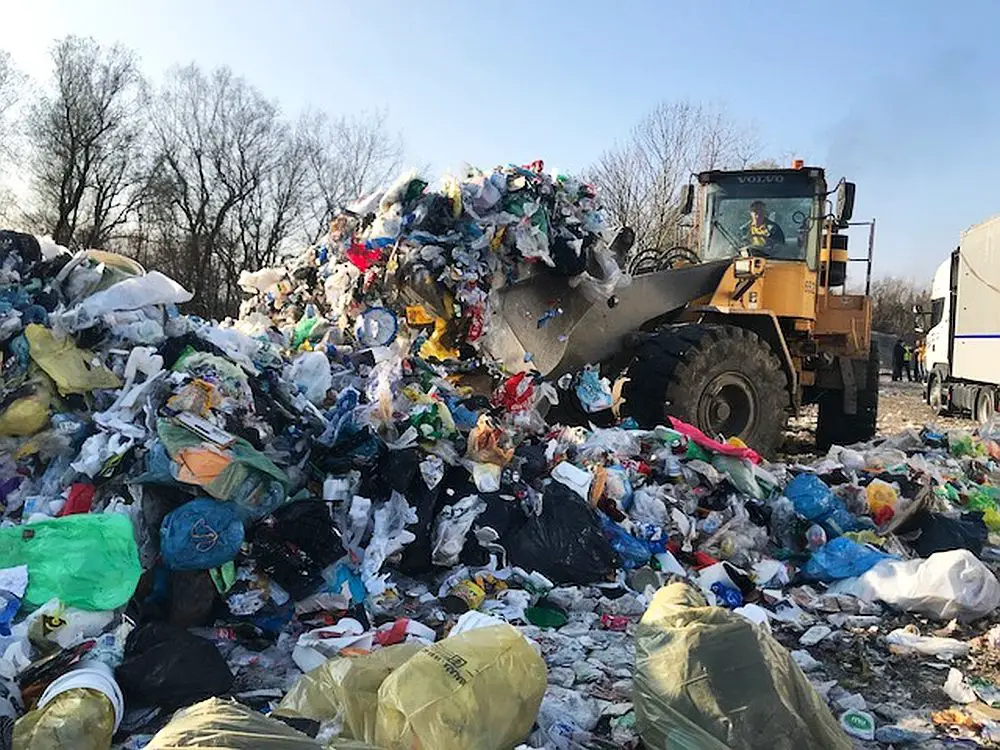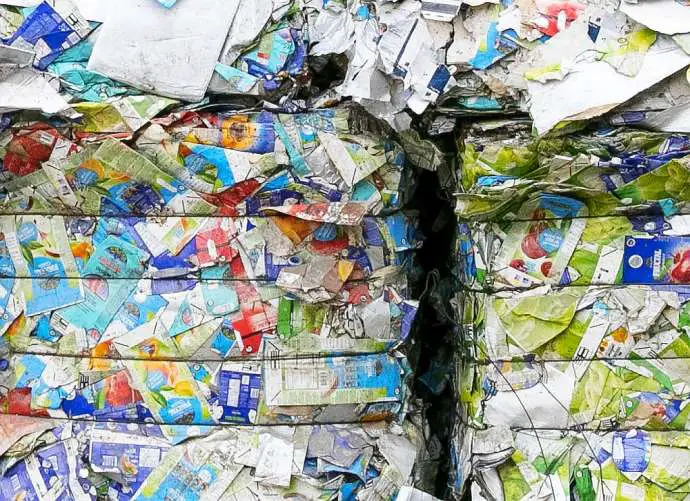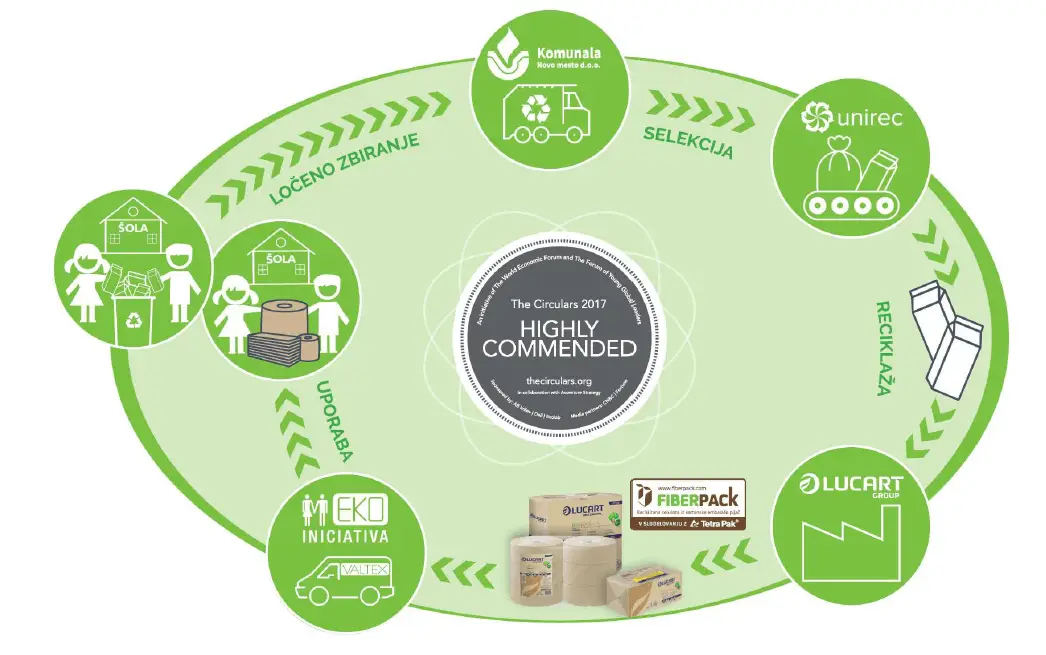April 7, 2019
Thanks to an initiative of Novo Mesto Utilities, half of the Lower Carniola’s state institutions are now equipped with toilet paper produced from recycled packages of locally consumed milk, juice and other liquids, reported Dnevnik last Thursday.
Three years ago Novo Mesto Utilities started a project to fully recycle such packaging, the first of the kind in the country. The KEMSO (aka Tetra Paks) packaging was send to Italy, where it was recycled into toilet paper and returned as such to Lower Carniola.
Picture: Novo Mesto Utilities
Although the story serves as a good example we can all learn from, it also illustrates the problem Slovenia is facing with regard to its underdeveloped recycling industry. What we do really well in Slovenia (as in most of other European countries) is divide waste into recyclables and non-recyclables and then export them to developing countries where the “good stuff” is actually recycled, while the rest is dumped in land pits, rivers and seas.
In 2017 China, who had until then been buying about 50% of Europe’s recyclable trash, put a ban on waste imports, which came into action in 2018. This meant a serious reality check for countries like Slovenia, who were completely relying on international markets to make their trash disappear. As the prices went down, such waste became too costly to transport and large amounts begun piling up at collection sites.
In October 2018, Jure Leben, then the new, now already former, environmental minister evaluated the situation as alarming not only in terms of being an environmental and sanitary emergency but also as a safety issue, since collection centres could no longer comply with fire and other precautions. Legislation was thus proposed to allow waste disposal to be financed by the government.

Photo: http://www.snaga.si
In line with the adopted EU strategy for reducing the use of plastic in everyday life, free plastic shopping bags were banned in Slovenia at the beginning of this year. According to the EU measures, disposable plastic cutlery, plates, straws and ear buds will also be banned by 2021. Other plastic waste, such as bottles will have to be recycled to the amount of 90% by the year 2025.
The second most common disposable items containing plastic, perhaps surprisingly, are cigarettes (in the filters) and lost fishing equipment, which account for 27% of all waste found on European beaches. The new rules say that these will need to be collected and, in the case of the fishing equipment, at least 15% recycled by the year 2025. It is the manufacturers of such products who will also have to cover the expenses for gathering the related waste.







